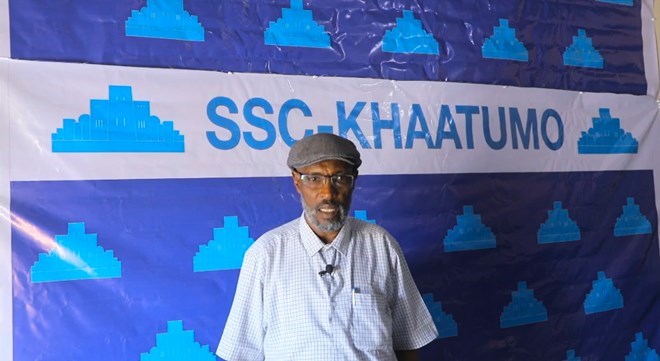
Wednesday March 15, 2023

Mogadishu (HOL) - The local committee of 33 elders of the Dhulbahante clan has stated that their forces will only agree to a ceasefire proposed by the Somaliland government or enter into direct talks once the Somaliland forces have withdrawn from the region. Aqil Abdirisaaq Mohamed Hassan Fallalug, the spokesperson for the committee, has reported that a ceasefire has not been implemented on the Somaliland side and that the Somaliland army has bombarded the city on several occasions. Fallalug has stated that there is no effective ceasefire in Sool and Las Anod, with daily fighting occurring. He has also claimed that the Somaliland forces have surrounded the city and controlled all main road access points.
In response, the Somaliland President has claimed that there is an atmosphere for dialogue and that the issue of Sool is within Somaliland and needs to be dealt with that way. However, Fallalug has refuted this claim, stating that negotiations with the Somaliland government can begin once their troops pull out.
The conflict in Las Anod is a complex and multifaceted issue that has led to ongoing violence and displacement. The city is located in the Sool region of Somalia and is a disputed territory between the self-declared republic of Somaliland and the autonomous Puntland region. Various factors, including external investment, internal competition, clan dynamics, and political ambitions, have driven the conflict.
The conflict in Las Anod is part of a broader Somaliland crisis characterized by internal competition and a struggle for narrative. Somaliland has sought international recognition as an independent state but has faced opposition from neighbouring states and the international community. The competition for recognition has led to intense internal divisions, with different political factions competing for power and influence.
Clan dynamics have also played a significant role in the conflict, with different clans aligning themselves with various political factions and actors. This has contributed to the complexity and intensity of the conflict, as well as the difficulty in finding a peaceful resolution.
The conflict in Las Anod has displaced thousands of people, with many seeking refuge in neighbouring Ethiopia. The situation remains volatile, with ongoing reports of fighting and human rights abuses. The United Nations High Commissioner for Refugees (UNHCR) has been working to assist displaced people, including providing shelter, food, and medical care. However, those who have been displaced continue to face significant challenges, including the risk of further violence and difficulties accessing essential services.